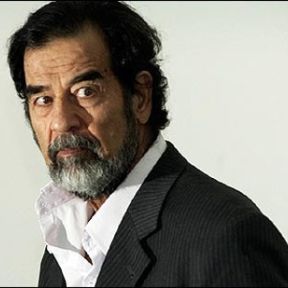
Emotional Abuse
Emotional abuse is a pattern of behavior in which the perpetrator insults, humiliates, and generally instills fear in an individual in order to control them. The individual's reality may become distorted as they internalize the abuse as their own failings.
An isolated occurrence doesn’t necessarily qualify as emotional abuse, but a pattern of behavior that creates fear and control does. Such mistreatment can occur in a range of interpersonal contexts, including a parental relationship, a romantic relationship, or a professional relationship.
People who suffer emotional abuse can experience short-term difficulties such as confusion, fear, difficulty concentrating, and low confidence, as well as nightmares, aches, and a racing heart. Long-term repercussions may include anxiety, insomnia, and social withdrawal.
Emotional abuse centers around control, manipulation, isolation, and demeaning or threatening behavior. Signs of abuse include:
• Monitoring and controlling a person’s behavior, such as who they spend time with or how they spend money.
• Threatening a person’s safety, property, or loved ones
• Isolating a person from family, friends, and acquaintances
• Demeaning, shaming, or humiliating a person
• Extreme jealousy, accusations, and paranoia
• Delivering constant criticism
• Regular ridicule or teasing
• Making acceptance or care conditional on a person’s choices
• Refusing to allow a person to spend time alone
• Thwarting a person’s professional or personal goals
• Instilling self-doubt and worthlessness
• Gaslighting: making a person question their competence and even their basic perceptual experiences.
Sometimes emotional abuse doesn’t involve overt threats or vigilant monitoring. More subtle signals that emotional abuse may be occurring in an important relationship include regularly judging a person’s perspective without trying to understand it, relying on blame rather than improvement, regarding the other person as inferior, frequent sarcasm, and telling the other person how to feel in an attempt to be “helpful.”
Perpetrators of emotional abuse consistently criticize, shame, and humiliate in order to gain control and power in a relationship. They may yell at their victim, call them names, or level baseless accusations against them. They may act jealous and possessive, monitoring the person’s whereabouts and communication by checking their phone.
An emotional abuser may gaslight their victim into believing that their unhappiness is their own fault. And they often seek to isolate their victim from friends and family, to prevent the person from getting a reality check or broader perspective.
Abusers are often skilled manipulators, so those suffering emotional abuse often don’t recognize the harmful patterns. Those tactics may lead the victim to believe that they are to blame for the problems in the relationship. These patterns occur consistently and often relent only when the victim understands the partner’s manipulative behavior and threatens to leave or ends the relationship.
Gaslighting constitutes a form of emotional abuse. By manipulating the victim to doubt his or her own sense of reality—continually saying things like, “That’s not how it happened,” or “You’re crazy,”—the gaslighter asserts control over the relationship, leading the victim to rely on the perpetrator for a sense of reality. Gaslighting can instill confusion, self-doubt, anxiety, and depression.
Abusers deny their harmful patterns of behavior and blame their victims. They tend to be possessive, hypersensitive, and have a strong need for control, which motivates them to wield power in the relationship. Abusive tendencies may stem from deep insecurities or a mental health condition such as a Cluster B disorder like antisocial personality disorder or narcissistic personality disorder.
Emotional abuse and physical abuse sometimes co-occur, but not always. Emotional abuse, however, often precedes physical violence, which only begins after a perpetrator's emotional assault tactics fail to control a person’s behavior.
Psychological abuse can sometimes be as damaging, or even more damaging, than physical violence. While physical abuse is occasional and cyclical, emotional abuse is constant. Violence tends to be perceived as the offender’s failing, whereas victims are more likely to internalize emotional abuse as their own personal failings.
Research suggests that over 50 percent of adults may experience emotional abuse in their lifetime, although the concept is difficult to reliably measure. Emotional abuse is designated as an adverse childhood experience, one experienced by 11 percent of children, according to the Centers for Disease Control and Prevention.
Leaving an abusive relationship is challenging but completely possible. Victims must come to recognize that reasoning with an abuser is not effective and that the individual will probably never change. To begin to heal, experts advise those leaving an emotionally abusive relationship seek support from one’s social circle and often a therapist.
Victims of emotional abuse are often worn down so that they cannot see the harmful dynamics clearly. They come to believe that the relationship challenges are their own fault. They may spend time ruminating and bargaining, considering how they can adapt their behavior or avoid confrontation. Victims may struggle with problems of self-esteem, as well as anxiety and depression.
Childhood verbal abuse can include constant criticism, put-downs, and rejection. Parents may stop the child from expressing anger or sadness, thereby stifling their range of emotions. The brain also inflates the prominence of negative experiences compared to positive experiences, which renders parental abuse deeply ingrained. (It also makes it nearly impossible for an affectionate parent to counter the effects of an abusive parent.) Childhood abuse can lead to emotional pain, anxiety, depression, self-criticism, low self-esteem, and difficulty forming stable and trusting relationships. But therapy can help individuals process parental abuse and abandon the maladaptive coping mechanisms they developed in childhood.
Survivors of emotional abuse or domestic violence often remain tethered to the relationship longer than outsiders can understand. But there are many reasons why leaving is so difficult. Constant accusations and harassment can wear down the victim and lead to distorted thoughts such as believing that she or he “deserves it” or that emotional abuse isn’t “real abuse.” Fear, damaged self-worth, concern for children or the family, financial constraints, and other factors can also lead victims to stay in abusive relationships.
Most victims of abusive or violent relationships eventually leave. It often takes several attempts, but a few common themes emerge from womens’ experience finally ending the relationship. One step is confronting reality, by acknowledging that the circumstances will not change, becoming educated about emotional abuse, and realizing the abuse is not the victim’s fault, which allows them to recover a sense of self-worth. Another step is accepting help from family, friends, or a therapist, who can see the situation clearly and provide resources and support. Another factor is the desire to protect the children from witnessing abuse or being abused themselves. The last factor for some is reaching a breaking point, where fear simply becomes overwhelming.
Although turbulent childhoods can produce substantial challenges, research suggests they can also yield great strengths. People raised in a stressful household—whether due to poverty, abuse, neglect, or other circumstances—may have enhanced cognitive flexibility, showcasing the ability to adapt, take risks, and tolerate ambiguity.
Therapy can help survivors move forward by processing the experience, rebuilding self-esteem, and addressing symptoms such as anxiety or insomnia. In the context of a new relationship, survivors can continue healing from emotional abuse by acknowledging the past abuse with their partner, resolving to prioritize oneself over any potential abuse in the future, and then responding to triggers of past pain with self-compassion.














